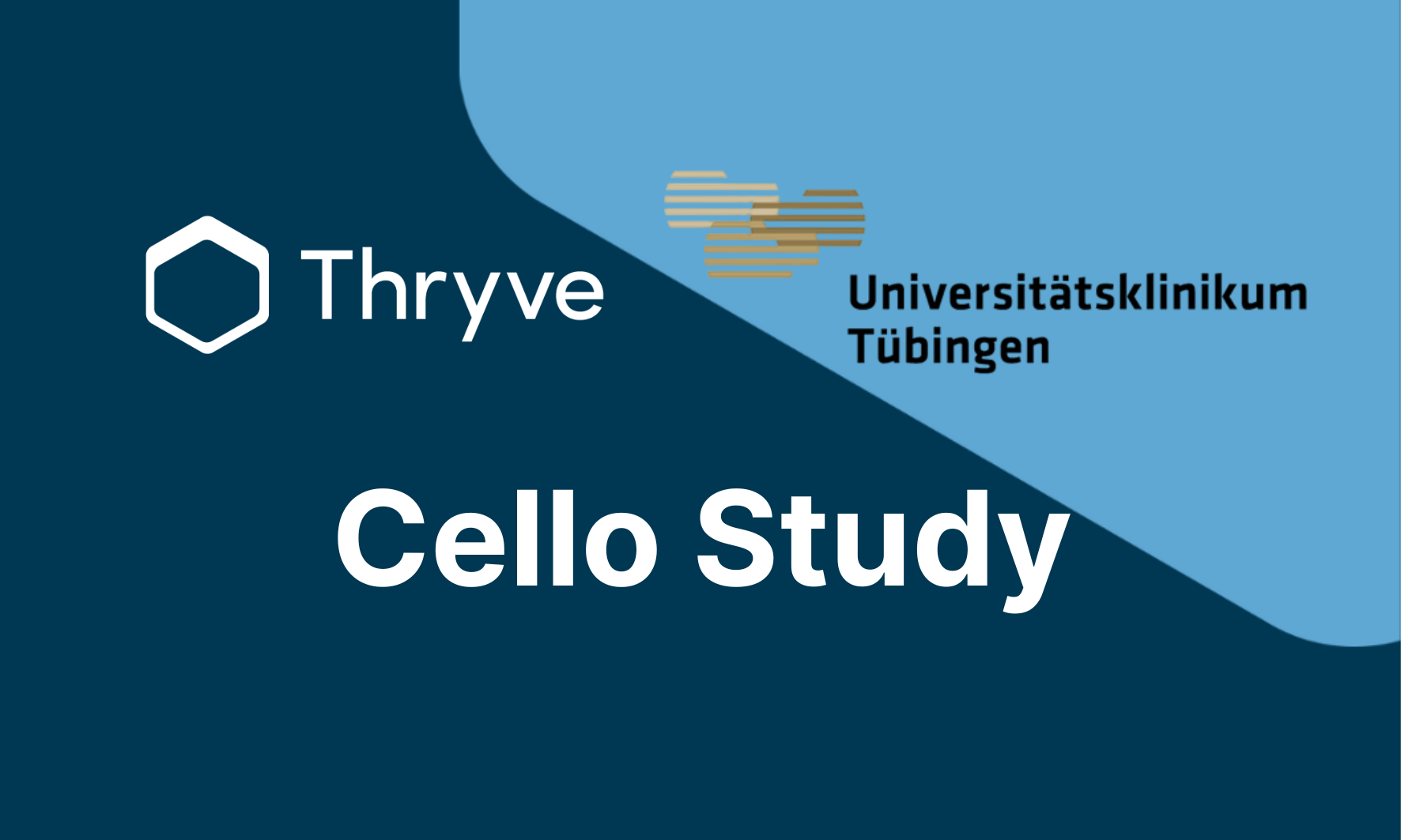
Chronic stress is one of the most pervasive threats to long-term health, and one of the hardest to detect early. The Cello study is an ambitious research initiative that aims to change that, using wearable health data and intelligent coaching to move stress detection and management into everyday life.
At Thryve, we’re proud to support Cello with the infrastructure needed to collect, process, and interpret continuous health signals. Here’s how the study is redefining the science of stress prevention.
The Cello study is a collaborative research project conducted by four of Germany's leading academic institutions:
The study is funded through the German Federal Ministry of Education and Research (BMBF) as part of a national program advancing intelligent digital health solutions. It combines medical research, behavioral science, and technology integration to explore the future of proactive mental health care.
Stress-related illnesses, including burnout, depression, sleep disorders, and cardiovascular complications, have reached critical levels across populations. In modern life, stress often accumulates in subtle but compounding ways, yet our clinical tools remain reactive, imprecise, and difficult to scale.
Traditional stress assessments rely heavily on subjective methods like questionnaires, self-reported diaries, or clinical interviews. These approaches provide only static snapshots of mental health and often miss the continuous fluctuations and early warning signs of stress overload.
Researchers in the Cello study were seeking to:
Achieving this required more than behavioral science alone. It demanded a comprehensive digital infrastructure to ingest, harmonize, and analyze high-frequency wearable data in a clinically meaningful and privacy-secure way.
The Cello project is developing a stress management system that combines passive data collection from wearables with adaptive stress coaching.
The study is divided into several sub-projects:
Thryve supports these studies by providing:
While the study is ongoing, early results are promising. The Cello field study in Tübingen successfully demonstrated that:
Beyond academic outcomes, Cello lays the groundwork for scalable mental health solutions that can live in real-world applications, whether in health insurance apps, employer wellness platforms, or digital therapeutics.
Ready to power your next clinical study with real-world health data?
Book a demo with Thryve!